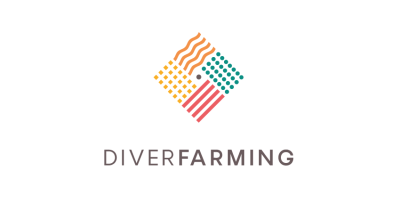The Diverfarming project presents its advances to the European Commission
The project crosses the halfway point of its duration with results on the benefits of crop diversification and an agricultural community that replicates these sustainable farming practices.
Diverfarming has now been in place for 36 months. The project, financed by the European Commission through its H2020 call, has worked for the first half of its lifespan on establishing and trialling different crop diversifications and low-input management techniques in different European regions and now presents its advances to the person in charge of the project and the assessors in the European Commission in this second ‘review meeting’.
In this meeting, scheduled to take place in Brussels, but which has been held online due to the COVID-19 pandemic, the coordinating team of each work package, led by the project’s coordinator, Raúl Zornoza, have defended the advances carried out since the last review meeting by the Commission (in February 2019). In this stage, results have started to be obtained from the diversifications at the level of yield, such as the increase in the melon crop with a 30% reduction in fertilisers in case study 16 in Murcia, where mask bean was introduced in melon monocropping; or the large harvest of oats grown among the alleys of the olive grove in case study 4 in Cordoba, as the coordinator of work package 3, Jorge Alvaro Fuentes, explained about crop production. Crop diversification has also brought about a reduction in erosion and an increase in carbon sequestration in the different case studies, as well as increased biodiversity, aspects that Sören Thiele and Dénes Loczy, who are in charge of the work packages on diversity and ecosystem services, analysed for the Commission.
With regard to the expansion of the diversifications trialled by the project, special mention should be made to the creation in this stage of the ‘Diverfarming Communities of Practitioners’, which aim for the agricultural community to put these sustainable practices into place in order to introduce this change in paradigm into European agricultural lands. The communication strategy, headed up by Elena Lázaro, has focussed, partly, on the creation of these communities which currently contain 17 participants in Italy, Spain, Denmark and Finland.
In spite of the issues caused by the COVID-19 pandemic regarding certain laboratory work or field visits, the project has fulfilled the targets set and is now planning the challenges for the second half of its trajectory.
Diverfarming is a project financed by the Horizon 2020 Programme of the European Commission, within the challenge of “Food Security, Sustainable Agriculture and Forestry, Marine, Maritime and Inland Water Research and the Bioeconomy”, which counts on the participation of the Universities of Cartagena and Córdoba (Spain), Tuscia (Italy), Exeter and Portsmouth (United Kingdom), Wageningen (Netherlands), Trier (Germany), Pecs (Hungary) and ETH Zurich (Switzerland), the research centres Consiglio per la ricerca in agricoltura e l'analisi dell'economia agraria (Italy), the Consejo Superior de Investigaciones Científicas (Spain) and the Natural Resources Institute LUKE (Finland), the agrarian organisation ASAJA, and the companies Casalasco and Barilla (Italy), Arento, LogísticaDFM and Industrias David (Spain), Nieuw Bromo Van Tilburg and Ekoboerdeij de Lingehof (Netherlands), Weingut Dr. Frey (Germany), Nedel-Market KFT and Gere (Hungary) and Paavolan Kotijuustola and Polven Juustola (Finland).

